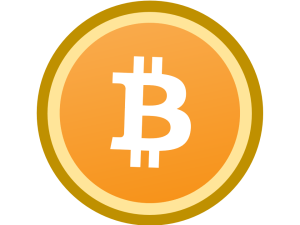If you wanted to create an entirely new world, like that in “Star Wars,” or in Neal Stephenson’s “Cryptonomicon,” you would certainly need an entirely new form of money. As Nathaniel Popper points out in his new book, “Digital Gold,” which tracks the roller-coaster ride of the digital currency called Bitcoin, it’s not surprising that part of its appeal to its devotees is that it could enable the creation of that new world, a libertarian utopia. Bitcoins — which are created, or mined, via complex computer algorithms, and are stored in digital wallets — offer privacy: Although every transaction is recorded, the users are identified only by wallet IDs, which are difficult, if not impossible, to track back to their owners. Theoretically, Bitcoins also allow users to avoid any fees or meddling by a middleman like a bank, because buyers and sellers can deal directly with one another. At its grandest, Bitcoin promises freedom from the clunkiness of cash, from the dominance of central banks and from technology that allows us to be tracked, even by our own governments. On a more prosaic level, why shouldn’t money be as vulnerable to technological disruption as, say, music?
Popper tells his story through a global cast of characters — technologists, altruists, evangelists, crooks and money men — who are every bit as memorable as Han Solo. There is the enigmatic, mysterious figure calling himself Satoshi, who in 2008 wrote what came to be known as the “Bitcoin White Paper,” which provided the basis of the code that created Bitcoins. “I’ve moved on to other things and probably won’t be around in the future,” Satoshi writes just as his invention is becoming more widely adopted, and while Popper never figures out who Satoshi actually is, he does, toward the end of his book, come to what seems to be a decent guess. (In a subsequent article, Popper has elaborated on what he calls “one of the great mysteries of the digital age.” He writes that there’s a “quiet but widely held belief” that Satoshi is one Nick Szabo, a reclusive American man of Hungarian descent who has played a critical role in Bitcoin’s development, but who denies that he is actually Satoshi.)
One of the early adopters of Satoshi’s invention was a man named Hal Finney, who was, Popper writes, “particularly drawn to Satoshi’s claims that users could own and trade Bitcoins without providing identifying information to any central authorities.” The late Finney, who had amyotrophic lateral sclerosis, or Lou Gehrig’s disease, and used his early stash of Bitcoins to pay for home care as his illness intensified, was a true and pure believer, as is the entrepreneur Roger Ver, who described Bitcoins as “the most important invention since the Internet itself. The world is changing because of Bitcoin right in front of our eyes.”
But Popper uses his characters to show the diverse set of intentions and motivations among Bitcoin’s promoters. He introduces us to the Argentine entrepreneur Wences Casares, who sees in Bitcoin a way to fix the woes his own country has experienced with a currency its citizens can’t trust. It’s Casares who helps get money men into Bitcoin — including Pete Briger, who runs the Fortress Investment Group — and they have their own reasons for buying in. “Pete’s job as an investor in distressed companies made him good at spotting broken systems, and the more he thought about it, the more broken the current methods of moving money around the world seemed to him,” Popper writes.
Bitcoin grows, and Popper pulls its contradictions to the surface. For instance, many people were willing to compromise the purity and power of the code for the convenience of having someone else handle the work before them. As Popper writes, “The choice was between security and principles on one hand and convenience on the other.” So Jed McCaleb, an iconoclastic math and science prodigy, creates a site called Mt. Gox, where people could buy and sell Bitcoins without having any understanding of the code themselves. After the demands of running it prove too much, McCaleb sells Mt. Gox to a disenfranchised young man named Mark Karpeles, whose inability to deal with real human beings would prove to be his, and perhaps Bitcoin’s, downfall. Popper reports that Karpeles, who sets up shop in Tokyo, was “two years into running the world’s largest Bitcoin exchange, but he had still not attended a single Bitcoin event abroad — a fact that he blamed on the sickness of his cat, Tibanne, who needed daily shots that Mark believed only he could administer.” The meltdown at Mt. Gox, which filed for bankruptcy in 2014, is a story so deliciously weird that it would stand all on its own.
But Mt. Gox is only one of the strange threads Popper follows through the history of Bitcoin. He also tells its darkest side through Ross Ulbricht, the surfer scientist and libertarian child of hippies, who created Silk Road, where people could engage in illegal transactions under the shroud of anonymity generated by Bitcoin. Silk Road became the Internet’s most infamous illicit bazaar and was the first killer app for Bitcoin. Popper perfectly juxtaposes the tale of federal agents’ old-school efforts to apprehend Ulbricht — who took the name Dread Pirate Roberts and justified his most morally reprehensible decisions in the name of freedom — with the growing mainstream interest in Bitcoin, from Silicon Valley to New York to the Federal Reserve itself, not as a revolutionary tool but as a practical way to update our currently creaky and pricey methods of moving money. (In May, Ulbricht was sentenced to life in prison.) In an irony of sorts, the cryptographic technologies at the heart of Bitcoin might themselves have great value as a tool for authenticating previously hard-to-trace transactions.
As Bitcoin is adopted by the moneyed class as a better mousetrap for the establishment, it inevitably risks becoming something its original adherents despise. Popper also charts the rise of a stealth company called 21e6, backed by the Valley’s elite, which harnesses technology to create Bitcoins more efficiently than anyone else, thereby mining money for those who already have plenty. The most poignant moment in the book comes when Popper contrasts a conference for the more ideologically minded Bitcoiners at a racetrack on the outskirts of Austin, where Ulbricht grew up, with the gathering of the rich and powerful at the South by Southwest festival, where Ulbricht’s mother is politely dismissed as she pleads for funds to help defray her son’s legal costs. It was an “unhappy reminder of a side of Bitcoin” that its new adherents “wanted to put behind them,” Popper writes. And as he notes, “If this was the new world, it didn’t seem all that different from the old one — at least not yet.”
Popper wants to tell us every last detail, and while the anecdotes have a you-were-there quality, the book does border on becoming encyclopedic at times. I wish he had left some characters out in order to let other stories unspool a little more slowly and pointedly, like when a hacker who manages to track Finney through Bitcoin targets him and his family, demanding ransom as Finney is dying.
Nor can “Digital Gold” be a tale with a satisfying ending, because the future of Bitcoin is unknowable right now. As the venture capitalist Barry Silbert says at a Goldman Sachs conference, Bitcoin “is either going to change everything, or nothing.” But if Bitcoin doesn’t change everything, people will keep trying to find something that will, and so Popper’s book stands as necessary reading, and very intriguing at that, regardless of the eventual fate of his subject.
Click on the bitcoin logo below to buy, use or accept bitcoin. Unocoin is India’s most popular bitcoin wallet.
To read the bitcoin white paper, visit: https://bitcoin.org/bitcoin.pdf








